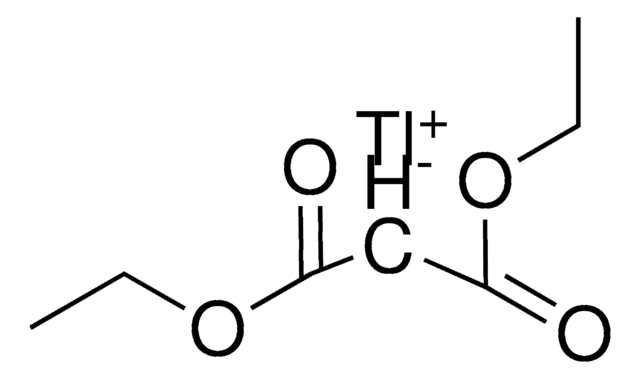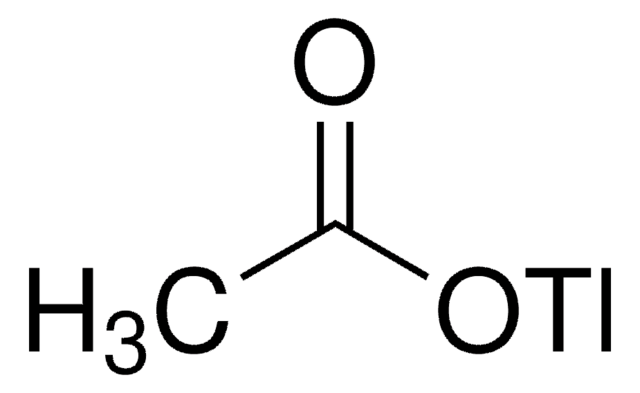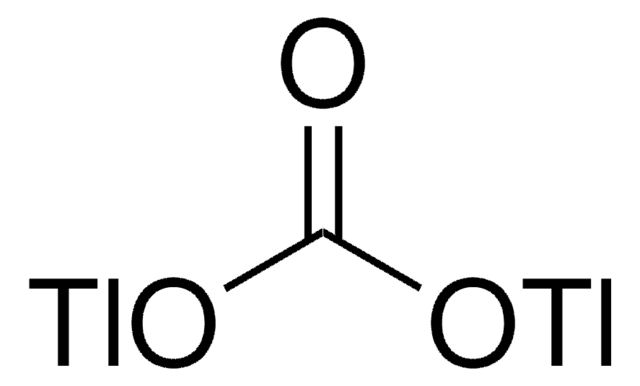310042
Thallium(I) formate
97%
Synonym(s):
Formic acid thallium(I) salt, Thallous formate
About This Item
Recommended Products
Quality Level
Assay
97%
reaction suitability
core: thallium
reagent type: catalyst
SMILES string
[Tl]OC=O
InChI
1S/CH2O2.Tl/c2-1-3;/h1H,(H,2,3);/q;+1/p-1
InChI key
UESISTHQAYQMRA-UHFFFAOYSA-M
Application
Used in Cherenkov radiation material
Signal Word
Danger
Hazard Statements
Precautionary Statements
Hazard Classifications
Acute Tox. 2 Inhalation - Acute Tox. 2 Oral - Aquatic Chronic 2 - STOT RE 2
Storage Class Code
6.1A - Combustible acute toxic Cat. 1 and 2 / very toxic hazardous materials
WGK
WGK 3
Flash Point(F)
Not applicable
Flash Point(C)
Not applicable
Personal Protective Equipment
Regulatory Listings
Regulatory Listings are mainly provided for chemical products. Only limited information can be provided here for non-chemical products. No entry means none of the components are listed. It is the user’s obligation to ensure the safe and legal use of the product.
PRTR
Class I Designated Chemical Substances
ISHL Indicated Name
Substances Subject to be Indicated Names
ISHL Notified Names
Substances Subject to be Notified Names
JAN Code
310042-100G:
310042-BULK:
310042-VAR:
310042-10G:
Choose from one of the most recent versions:
Already Own This Product?
Find documentation for the products that you have recently purchased in the Document Library.
Our team of scientists has experience in all areas of research including Life Science, Material Science, Chemical Synthesis, Chromatography, Analytical and many others.
Contact Technical Service









